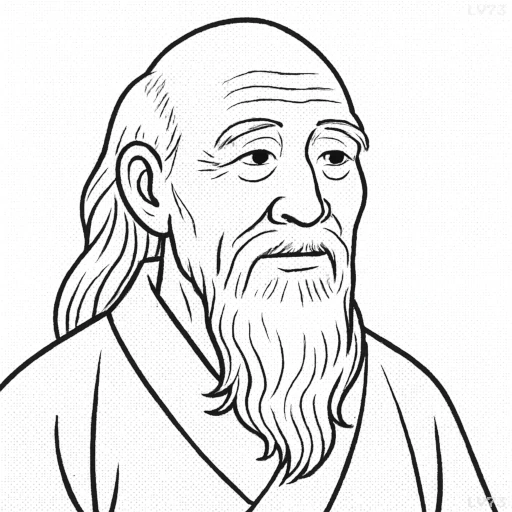“He who talks more is sooner exhausted.”

- 571 BC? – 470 BC?
- Born in China
- Philosopher
table of contents
Quote
“He who talks more is sooner exhausted.”
Explanation
This quote from Laozi highlights the importance of stillness and restraint in speech. Laozi suggests that those who speak excessively or without thought will quickly drain their energy, as constant talking disperses focus and effort, leaving the individual tired or mentally exhausted. In contrast, those who practice quietude and thoughtful silence conserve their energy and maintain a more balanced and focused presence. This wisdom aligns with Daoist principles of non-action (wu wei) and effortlessness, where individuals are encouraged to act and speak in harmony with the natural flow, without overexerting themselves. Laozi’s teaching points out that less is often more, and that it is through mindfulness and restraint in speech that one can achieve greater clarity, wisdom, and inner peace.
In modern life, this idea is particularly relevant in the context of communication and mental health. Constant talking or the need to fill silence can lead to mental fatigue and sometimes prevent deeper understanding or connection. In today’s world, where many are accustomed to speaking constantly—whether in meetings, social media, or casual conversation—Laozi’s reminder to speak less and listen more can help prevent burnout and create more meaningful interactions. By embracing moments of silence or brevity, we allow for reflection, thoughtfulness, and a deeper quality in both our speech and relationships.
This principle also speaks to the value of active listening—by speaking less, we make space for others to share and for ourselves to truly understand what is being communicated. In leadership, personal relationships, or any form of collaboration, this approach fosters respect and harmony. Laozi’s wisdom encourages us to find balance in our speech, recognizing that wisdom often lies not in how much we say, but in what we choose to say and when.
Would you like to share your impressions or related stories about this quote in the comments section?




